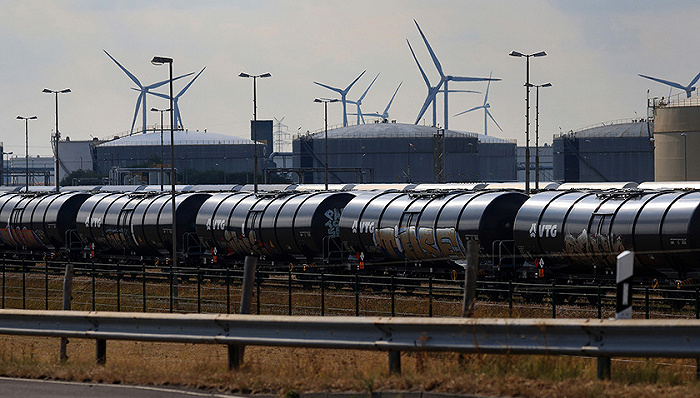
European Commission President von der Leyen said on Wednesday that the EU would carry out “comprehensive and in-depth reforms” of the electricity market.
In a speech at the European Parliament building in Strasbourg, France, she pointed out that the market was designed based on the principle of merit and was not fit for purpose. “Consumers should benefit from low-cost renewable energy, so we must Changing the dominance of natural gas prices on electricity prices.”
Earlier this month, Russia announced an indefinite shutdown of the main natural gas pipeline “Nord Stream 1” that supplies gas to the EU, further intensifying the European energy crisis caused by the Russia-Ukraine conflict.
EU energy ministers met on Friday to discuss a package to deal with the crisis, which includes imposing a price cap on Russian natural gas, imposing an excess profits tax on fossil fuel companies, limiting the income of renewable and nuclear energy companies, A mandatory 5% reduction in electricity consumption during peak hours and the provision of emergency credit lines to power companies.
The European Commission said in a statement on Wednesday that the EU could set a cap of 180 euros/MWh on electricity produced by renewable energy companies.
Renewable and nuclear energy companies have seen profits surge as wholesale natural gas prices soar. Europe’s benchmark natural gas price was around 208 euros per megawatt hour on Wednesday, well below the record level of 343 euros set in August but up more than 200% from a year ago.
In addition, EU member states should impose additional taxes on any profits that exceed 20% of average income over the past three years, but it did not specify the specific tax rate. The proposals remain to be discussed and adopted by EU member states.
After the above proposal was announced, Russian President Vladimir Putin threatened to ignore existing contracts and completely cut off energy supplies to Europe. The EU’s natural gas imports from Russia have dropped from 40% last year to 9% now.
When talking about the imposition of excess profit taxes and restrictions on the income of some energy companies, von der Leyen said that these companies are making money that they have never dreamed of. Although profits are not necessarily a bad thing, they go behind the backs of consumers and gain from the war. Record revenue and profits, that’s not right. “At this time, profits must be shared and distributed to those who need them most.”
She also added that a tax on excess profits from fossil fuel companies would bring in 140 billion euros (about $140 billion), which would be shared among member states.
Von der Leyen said the EU’s top priority is to end its dependence on Russian natural gas and shift to reliable suppliers such as the United States, Norway, Algeria and other countries, while increasing investment in renewable energy and liquefied natural gas terminals.
After the conflict between Russia and Ukraine broke out, Europe imposed sanctions on Russia’s oil and coal exports. In response, Russia reduced its natural gas supplies to Europe. This has left utilities facing a liquidity crunch and households struggling to pay their energy bills.
German local utility group VKU recently warned of the possibility of bankruptcy. Several utility companies in the EU and UK have previously collapsed. Because governments impose price caps, they are unable to pass on the full cost of rising gas prices to consumers. The group said it was negotiating with the German government.
French grid operator RTE said there was no risk of complete blackouts in winter, but it did not rule out imposing power restrictions during peak hours, saying reducing demand was crucial. “Reducing national electricity consumption by 1% to 5% under normal circumstances and by 15% in extreme cases of natural gas shortages and very cold conditions will help alleviate power shortages.”
EU countries and the UK have so far pledged around 500 billion euros in subsidies to help households and businesses cope with soaring energy bills.
Earlier this year, Britain imposed a 25% tax on windfall profits from oil and gas companies and used it to fund the first round of bailout measures. However, the new British Prime Minister Truss has stated that he will not increase or extend this tax.
